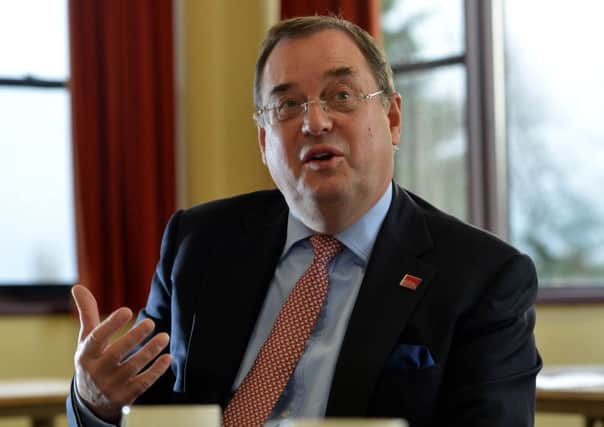Plea for innovation hubs to get region off bottom


This was one of the ideas to emerge from an event held yesterday to help increase the level of innovation taking place in Yorkshire.
Roger Marsh, chairman of the Leeds City Region Local Enterprise Partnership (LEP), highlighted the 3M Buckley Innovation Centre in Huddersfield and Science City York as examples of universities working with companies to create commercial value.
Advertisement
Hide AdAdvertisement
Hide AdHe told the Yorkshire Post that higher education institutions “need to collaborate at a different level” with businesses.
Business leaders have warned that the city region is failing to translate its cluster of research-driven universities, diverse manufacturing base and capabilities in growth industries such as healthcare and digital technology into economic growth.
Ian Sharp, director at Khemeia Consulting and an adviser to the LEP, said: “We are very good at thinking about it and doing the background research but less good on capitalising it.”
Mr Marsh questioned whether the 3M centre could be replicated at other locations to stop the city region “languishing at the bottom” in national indicators in areas like patent registration.
Advertisement
Hide AdAdvertisement
Hide AdThe LEP is bidding for £50m in public funding to help boost innovation and invited business, university and public sector leaders to yesterday’s event to contribute their ideas on how the money could best be spent.
Simon Hooton, a director at economic consultancy Regeneris, told the audience that Leeds has a solid base of human capital, but probably does not punch its weight in high-level skills.
The city region performs badly in start-up rates, with the second-lowest figure in all LEP areas, he said. Within this, Harrogate does well, but in Wakefield the figure is low, he added.
In contrast, he said businesses in the city region have good survival rates.
Advertisement
Hide AdAdvertisement
Hide AdMr Hooton said the city region has the second highest rate of growth in spending on research and development, but this is from a low base.
He added that less than a quarter of firms surveyed invested in R&D and just eight per cent sought external help on innovation.
Brian McCaul, an expert in commercialising university research, told the audience how the region’s universities fared in comparison to the “great eight” technologies that support Britain’s science strengths and business capabilities.
He said Leeds University is a national leader in big data, but “perhaps lacks leadership... in making that relevant” to business.
Advertisement
Hide AdAdvertisement
Hide AdHe added that York and Leeds universities are third and sixth best-placed in agri-science.
Mr McCaul also highlighted the strength of Leeds and Bradford universities in regenerative medicine and Huddersfield in advanced materials.
Roland Harwood, founder of 100% Open, a spin-out from the National Endowment for Science, Technology and the Arts, presented the event.
He told the audience that the world’s 300 top metropolitan areas account for 18 per cent of the global innovation and 48 per cent of global GDP, which shows that “the city region is the right unit for making innovation happen”.
Advertisement
Hide AdAdvertisement
Hide AdHe said Leeds could learn valuable lessons from international rivals, which have all created modern economies based on innovation:
n Milan in Italy has undergone the transition from heavy industry to design and fashion;
n Eindhoven in the Netherlands has created a vibrant start-up culture as local employer Philips reduced headcount;
n Vienna in Austria has great “liveability”;
n Zurich in Switzerland has invested heavily in transport infrastructure, allowing 60 per cent of the city’s population access to the city centre within 15 minutes, which has helped attract the likes of Google and IBM;
n Toronto in Canada has the Rotman School of Management;
Advertisement
Hide AdAdvertisement
Hide Adn Grand Rapids in Michigan avoided the decline of neighbouring cities like Detroit and has a great culture of philanthropy;
n Medellin in Colombia went from the murder capital of the world to most innovative city in the world with linear parks created along old railway lines “to get people to bump into each other”, said Mr Harwood.
Mr Marsh, a former senior partner at Big Four accountancy firm PwC in Leeds, said: “We have all the right ingredients, we have just not found the right recipe yet.”
He said the “polycentric” nature of the Leeds City Region, which is made up of 11 local authorities, “should not be an excuse for silo approaches”.
He hopes the city region will be able to attract £200m a year in public funding, which could leverage £1bn in overall investment.